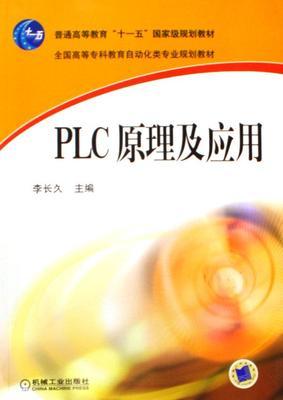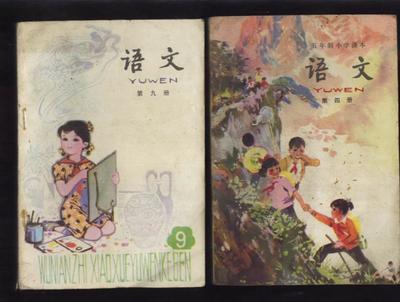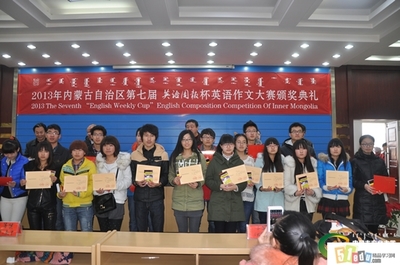80年代初中英语课本 初中英语在线学习
(80年代初中英语课本第五册第1课)
Long, long ago, there was a war between the birds and the beasts. No one knows what they fought about.
The bat did not know whose side he should take. He thought and thought, then decided he must try to be on the side of the winners.
So he watched from far away. After a while, it seemed that the birds were going to win. He flew over to join them.
“What on earth are you doing here?” a bird shouted at him.
“Can’t you see I’m a bird?” the bat said with a smile. “Look, I have swings, just like you.”
“Come along, then,” said the bird. “Don’t hide behind others.”
But things changed soon. Now it seemed that the beasts were winning. So the bat left the birds in a hurry and went over to the beasts.
“What are you doing on our side?” and animal called out to him. “Are you spying on us?”
“Don’t you know I’m one of you?” asked the bat, showing his teeth. “Look. Can’t you see I’ve got teeth, too?”
“Who are trying to fool?” said the animals. “We saw you fighting on the side of the birds just now.”
So the beasts drove him off. Of course the birds refused to take him back.
When the beasts and the birds saw neither side could win, they decided to stop fighting.
Neither beasts nor birds would have the bat as their friend, so he was afraid to leave his home. Ever since then, he comes out only at night.
Lesson 2
Nathan Hale
(80年代初中英语课本第五册第2课)
The young American stood quietly while the British guards searched his clothes. They found nothing. “If they don’t find the maps in my boot,” he thought, “maybe they will let me go. Then I’ll try to send the maps to General Washington.”
“Take off your boots,” one of the guards ordered. The American’s heart beat faster. He took off his boots and handed them to the guard.
The guard looked inside one boot, then another.
“Use your knife, man!” ordered the British officer nearby.
The guard brought out his knife and cut one boot open. He stopped suddenly and the American knew what it meant. The maps of the British army’s defence works!
The guards took the American to General Howe. The general looked at the maps. “I see you’ve made some drawing of our defence works,” he said. “This can only mean one thing.”
“Yes, sir.”
“Do you have anything to say for yourself?”
“No, nothing.”
“What’s your name?”
“Nathan Hale.”
“Rank?”
“Captain.”
The general studied the maps a few more minutes. “Captain Hale,” he said finally. “I’ve never seen such fine drawings. You know, we could use a man like you. Why not join us? You don’t have to worry about rank or pay.”
Nathan Hale looked straight at the general. “Nothing could make me turn against my country!”
“Then there’s only one thing I can do, you understand?”
“Yes, sir.”
“You will be hanged as a spy early tomorrow morning.”
***
Nathan Hale looked around as a British soldier put the rope around his neck.
“Now, Nathan Hale,” said the British officer. “Let’s hear what you have to say before you die.”
Nathan Hale took a last look at his beautiful country and said, “I only regret that I have but one life to lose for my country.”
Lesson 3
A question of pronunciation
(80年代初中英语课本第五册第3课)
This happened inLondon. It was November and the weather was very wet and cold.
A Frenchman had caught a very bad cold. He coughed day and night. So he decided to go and get some medicine for his cough. As he did not know much English, he got out his dictionary and looked up the word “cough”. But the dictionary did not tell him how to pronounce the word. He thought it over and remembered that he had learned the word “plough”. He remembered that it was pronounced [plau]. So he thought that c-o-u-g-h must be pronounced [kau].
The he put on his coat and hat and went to a chemist’s shop. When the man in the shop asked him what he wanted, the Frenchman said:
“I want something for my cow, please.”
The man in the shop looked at him. Had he heard him correctly?
“I beg your pardon, sir?” he asked.
The Frenchman repeated: “I want some medicine for my cow.”
“For your cow?” asked the man. “Are you a farmer?”
“A farmer?” said the Frenchman in surprise. “What makes you think I’m a farmer? I come fromParis. I’m not a farmer.”
“Where’s your cow, then?” asked the man in the shop.
“It’s here!” replied the Frenchman. He put his hand on his chest and began to cough. “Here it is!” he said. “I’ve a very bad cow here.”
Then the man in the shop understood what the Frenchman meant. He wanted some medicine for his cough.
Lesson 4
The Arab in the desert
(80年代初中英语课本第五册第4课)
An Arab was walking alone through the desert when he met two men. The men looked worried. It seemed that they had lost something. The Arab went over to them.
“Have you lost one of your camels?” he asked them.
“Yes,” they said.
“Was he blind in the right eye and lame in the left foot?” asked the Arab.
“Yes, he was?
“Had he lost a tooth and was he carrying corn?”
“Yes,” said the men. “Please tell us where he is.”
“I don’t know where he is,” said the Arab. “I’ve never seen such an animal.”
“Did someone tell you about him?”
“No.”
The two men looked at each other in surprise. They could not believe the Arab’s words. Finally, they came up close to him, took hold of him, and shouted:
“Where’s the animal? And what have you done with our goods?”
The Arab insisted that he had never seen the camel. At last the men took him before a judge. They said that the Arab had stolen their camel.
“I’ve never seen their camel,” insisted the Arab. “But I’m a man of the desert, and I’ve learned to look carefully at everything I see. This morning I saw the tracks of a lost camel. I knew this because there were no man’s tracks near those of the camel. I also saw that the camel must be blind in the right eye, because he had only eaten the grass on his left side and had not touched the grass on his right. The animal was lame because with one foot he left a track much lighter that any of the others. He had lost a tooth, because wherever he ate grass, there was always a small space left untouched. I also found groups of ants near the tracks of the camel. They were pulling pieces of corn. From these facts I was able to tell what goods the animal was carrying.”
The judge and the two men were satisfied with what the Arab had said. Together the four men set out to look for the lost animal.
Lesson 5
The seagulls ofSalt Lake City
(80年代初中英语课本第五册第5课)
Salt Lake Cityis a beautiful city in the west ofNorth America.The name comes from a great salt lake nearby. The city lies in a valley with high mountains all around it. But long ago there was almost nothing in this place and there were very few people living here.
More than a hundred years ago, a group of men, women and children moved from the east to the west. They had traveled a long way. At last these brave people came to the great mountains by the salt lake. They crossed the mountains and reached this quiet place. They decided to stay here, and so they built their homes and made their farms. This was whereSalt Lake Citynow lies.
The people had to work hard on their farms, because their lives depended on their crops.
One day while they were working in the fields, some farmers saw something strange in the sky.
“What’s that?” asked one of them.
“Where?” asked another, as he stopped to look.
“Over there,” was the reply.
They saw something like a cloud coming, but it was too low in the sky. As they watched, it came nearer and nearer. Suddenly a shout went up: “Locusts! Millions of them!”
The words put fear into the hearts of all, because they knew what locusts could do, and they had never seen so many of them before.
In no time the locusts came down and started eating everything – the wheat, the corn, the grass and even the leaves on the trees.
The farmers brought out things to fight the locusts. They tried everything. But while they were killing the locusts in one place, millions more arrived in another. What could the farmers do?
Suddenly there was a great noise. As they looked up, they saw another cloud coming towards them. To their surprise, they saw not locusts this time, but seagulls. The farmers cried out, “They’ve come to eat what the locusts have left.”
But to their joy, they found that the seagulls had come to eat not the crops, but the locusts. They had seen or smelled the locusts and had come from theGreat Salt Lake. Now they were eating the locusts! In a short while they ate up millions of them. The farmers’ crops were saved!
The people were very thankful. They decided that from then on no one should ever kill a seagull. And today, if you go toSalt Lake City, you can see a monument with seagulls on top of it.
Lesson 7
The Pyramids
(80年代初中英语课本第五册第7课)
Thousand of years ago, the kings ofEgyptbuilt strong bombs for themselves. Over these tombs they built pyramids. They thought their bodies would be well kept in these until they could come back to life. They also hoped the world could look on the pyramids as monuments to them and would remember them for ever.
There are around 80 pyramids inEgypt. But the Great Pyramid is the biggest of all. It is nearly 5,000 years old. It is about 137 metres high today, but it was once highter. It is made of 2,300,000 huge stones. Most of them are higher than a man and weigh about two and a half tons each. Some weigh as much as fifteen tons. It took more than 100,000 men twenty years to build the Great Pyramid.
When you look at the pyramids, you can’t help wondering how the Egyptians were able to build them thousands of years ago. How did they cut, carry and lift such huge stones? Each stone fits so well, yet they didn’t have our modern machines! Scientists have studied the pyramids, but nobody can tell just how the Egyptians build them so long ago.
Inside the pyramids are the rooms for the bodies of the kings and queens. There are lots of wonderful treasures in the pyramids, too. Thieves have broken into some of the pyramids and taken away many of the treasures to foreign countries. They have even stolen the mummies. Today some of the mummies and treasures are on show in museums in different countries. When the kings had the pyramids built for them, they perhaps never thought this would happen.
Lesson 8
Once a thief, always a thief?
(80年代初中英语课本第五册第8课)
Mr Smith, the boss of a small factory, once hired a young worker called John Hill. On the first day, Mr Smith took John to one ofhis workshops and introduced him to the other workers. The men introduced themselves to John and showed him around the factory. Then John started to work.
John was good at his job. Soon he got a rise. And he got on well with his workmates. He hoped they could like him.
But one morning John noticed that his workmates were looking at him and talking in low voices. Then Bob, one of his workmates, came up to him and asked whether it was true that he had been a thief and had just come out of prison. John’s heart sank. He had been afraid of this all along. He told them that he had been in prison, but he was no longer a thief and wanted to forget the past.
The workers went to Mr Smith and asked him to fire John. Mr Smith explained to them that John had told him all about his past when he asked for a job in his factory. That showed John was honest. Since a lot of people make mistakes in life, Mr Smith wanted to give John a chance. The workers went back and John stayed. But after that they were not as friendly to him as before.
One afternoon about a week later, Bob could not find his wallet. He went to John and asked whether he had seen his wallet. But John said he knew nothing about it. When Bob tried to catch hold of his arm, John hit him in the face. Bob fell to the ground and blood ran down his nose.
Mr Smith came out to see what was happening. The workers again asked him to let John go. They said they would all leave if John stayed. Mr Smith knew what that would mean. So he had to give in and say sorry to John.
Just at that moment, in came a woman. It was Bob’s wife. She called out, “Bob, you forgot your wallet when you left home this morning. I thought you would need it, so I brought it over to you.”
Everyone looked at Bob.
“John, I…I’m sorry,” said Bob with a red face.
“John, I want to apologize-for us all,” said Mr Smith. “Please stay with us. This is a lesson for Bob, for me, and for all of us.”
Lesson 9
Edison’s boyhood
(80年代初中英语课本第五册第9课)
Thomas Edison was born in 1847. When he was a child, he liked to find out how things worked. One day when he was five, his father saw him sitting on some eggs, and asked what he was doing that for. Tom did not reply. Instead, he asked his father why he was not able to hatch chickens while hens could.
Young Tom was in school for only three months. During those three months, he asked a lot of questions. Most of them had nothing to do with his lessons. His teacher did not understand why the boy had so many strange questions. He told Tom’s mother that Tom was not bright and was not worth teaching. His mother took him out of school and taught him herself. The boy read a lot. He became very interested in science.
By the time he was ten, he had already built a chemistry lab for himself. He planted vegetables in his garden and sold them to buy what he needed for his lab.
Once his mother was ill and she sent for a doctor. The doctor said she needed an operation at once. But it was night and the lamp in the room gave poor light.Edisonthought hard. Finally he had an idea. He collected all the lamps in the house and put them on a long table. Then he placed a big mirror behind them. Now there was enough light, so the doctor could operate.Edison’s mother was saved.
At the age of twelve,Edisonbegan selling newspapers on a train. When he was free, he printed a newspaper and sold copies to the railway workers.
One day in August, 1862,Edisonsaw a little boy playing on the tracks at a station. A train was coming near quickly, and the boy was too frightened to move.Edisonrushed out and carried the boy to safety. The boy’s father was so thankful that he taughtEdisonhow to send messages by railway telegraph.Edisonsoon became very good at it and later he left home to work in different cities. This gave him a start in life. At that time he was just a boy of sixteen.
Lesson 10
Dr. Bethune
(80年代初中英语课本第五册第10课)
It was late on the night of October 20, 1939, when Dr. Bethune was busy working in a field hospital. An Eighth Route Army man riding a horse came from the front. He told Dr. Bethune that the front was in great need of medical workers. Immediately, Dr. Bethune set off with a medical team.
On their way, they met a group of wounded Eighth Route Army men. They took the wounded soldiers into a small temple at once and Bethune began to operate on them.
Dr. Bethune went on working throughout the night. When someone asked him to have a rest, he just went on workings. To him, the most important thing was to save lives. He had no time to think about rest.
The next day while an operation was going on, a yong man ran in and said to the doctors, “Several hundred enemy soldiers are coming.” Soon they heard the sound of guns. But Dr. Bethune still went on with his work.
Twenty minutes later, when Bethune was operating on the leg of the last wounded soldier, the guns sounded much closer. Again the young man rushed in and told Dr. Bethune not to go on operating any more. “Comrade Bethune, you must leave now!” he said.
“Let me go on with the operation,” said one of the doctors. “You must leave rught now, Dr. Bethune. Hurry!”
“Please go, doctor,” begged the wounded soldier himself. “It’s not a bad wound. Take me with you, or leave me here, but please go before the enemy comes.”
“Never mind, my boy, it won’t take long,” said Dr. Bethune. “If I spend a few more minutes on it now, I can save your leg. But if I don’t, you’ll lose it.”
The guns sounded still closer now, but Dr. Bethune worked on. He and the other doctors did not leave until the operation was over.
By that time the Japanese were already very near. As Bethune and the other doctors were climbing the hills, they could see the enemy entering the village in the valley below.
Lesson 11
The fisherman and the genie
(80年代初中英语课本第五册第11课)
Once upon a time there was an old fisherman. He went fishing very early every morning, but he never cast his net more than four times a day.
One morning, he went out early to the sea. He cast his net for the first time, and drew in the body of an animal. He cast it a second time, and drew in an old basket full of sand. He cast it a third time, and drew in a lot of stones. It seemed he would have nothing to take home that morning.
Day had now broken, and he cast his net for the last time. After some time, he began do draw the net in. He found it was very heavy. But there were not any fish in it. Instead he found a jar with a lid. He shook the jar, but could hear nothing. So he took off the lid and looked inside. He could see nothing. After a while a light smoke came slowly out of the jar. Then little by little, the smoke grew hearvier and thicker until finally it turned into a terrible Genie!
“Get down on your knees,” said the Genie, “for I’m going to kill you.”
“Why? Didn’t I set you free from the jar?”
“That’s why I’m going to kill you, but I’ll let you choose how you’re going to die.”
“But why?”
“Listen, and I will tell you my story.”
“I was one of the spirits in heaven. But I did not want to obey Solomon’s orders. So one day, he put me in this jar and threw it into the sea.
“During the first hundred years of my stay in the sea, I made a promise that if anyone set me free I would make him very rich. But no one came. During the second hundred years, I promised that if anyone set me free I would show him all the treasures in the earth. But still no one came. During the third hundred years, I promised that if anyone came to set me free, I would make him king over the earth.
“Still no one came. Then I became very angry, and decided that if anyone should set me free I would kill him at once. Now you have come and set me free. So you must die, but I will let you say how you want to die.”
The fisherman was not frightened. He said: “Since I must die, I must. But before I die, answer me one question.”
“All right, but be quick.”
“Were you really in the jar? You are so big and the jar is so small that it could hardly hold one of your feet.”
“Of course I was in the jar. Don’t you believe me?”
“No, and I won’t until I’ve seen you in the jar with my own eyes.”
When he heard this, the Genie changed again into smoke. Slowly the smoke went back into the jar. When all of it was in the jar, the fisherman quickly put the lid on and threw it back into the sea.
更多阅读

《义教课标》对小学英语合作学习与自主学习的要求
今天讨论小学课程开发,其中涉及到合作学习与自主学习。摘录了课标相关内容,特分享。《义务教育英语课程标准》对小学英语合作学习与自主学习的要求一、对合作学习的要求理念四:鼓励学生在教师的指导下,通过体验、实践、参与

80年代-2010年日本动画列表 80年代日本动画片
80年代1980年多啦A梦 大雄与小恐龙大白鲸宇宙战舰大和号怪物王子明日之丈汤姆索耶的冒险神勇战士铁人28号1981年IQ博士 (阿拉蕾)六神合体鲁宾逊漂流记忍者服部君战国魔神豪将军无敌小战士

八十年代小学语文课本大放送四 80年代小学语文课本
五年制小学语文第九册1 长城远看长城,像一条长龙,在崇山峻岭之间蜿蜒盘旋。从东头的山海关到西头的嘉峪关,有一万三千多里。从北京出发,不过几十公里就来到长城脚下。这一段长城修筑在八达岭上,高大坚固,是用巨大的条石和城砖筑成的。

英语周报学习网
英语学习网欢迎您百度新开:“英语周报学习网”吧地址:http://tieba.baidu.com/f?kw=%D3%A2%D3%EF%D6%DC%B1%A8%D1%A7%CF%B0%CD%F8请大家多多支持,多发贴,争当吧主,共同建设英语学习网!大家交流讨论,共同进步!From majestic mountains a

经典英语口语学习资料大全
经典英语口语学习资料大全,很实用,全部看完你的英语不愁了1. 经典个性短句,英语口语精华短句http://www.8hello.cn/w_show/37/w_show-18601.html2. 地道电影口语57句(中英文翻译对照)http://www.8hello.cn/w_show/37/w_show-18542.h
 爱华网
爱华网